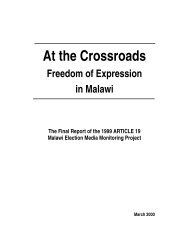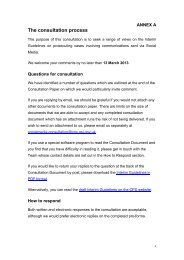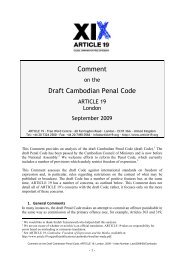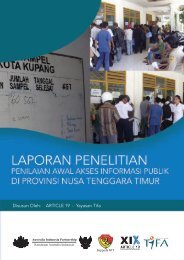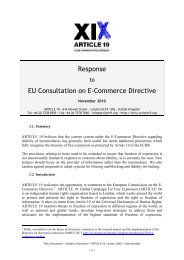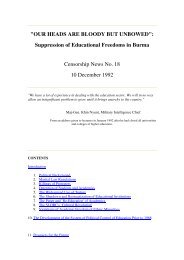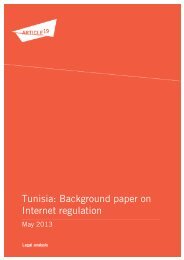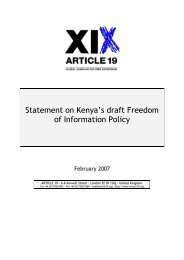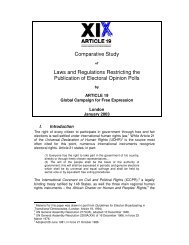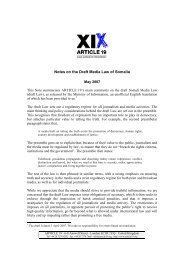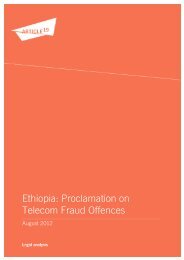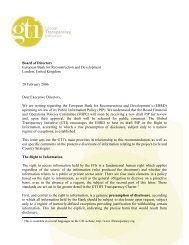FOR INTERNAL USE ONLY - Article 19
FOR INTERNAL USE ONLY - Article 19
FOR INTERNAL USE ONLY - Article 19
- No tags were found...
Create successful ePaper yourself
Turn your PDF publications into a flip-book with our unique Google optimized e-Paper software.
ARTICLE <strong>19</strong>GLOBAL CAMPAIGN <strong>FOR</strong> FREE EXPRESSION• Public bodies must actively promote open government. Informing the public of their rights andpromoting a culture of openness within government are essential if the goals of freedom ofinformation legislation are to be realised. The best approach will vary from country to country but,at a minimum, there will be a need to train public officials and conduct public educationcampaigns. Attention must also be given to promoting better record maintenance by public bodies.In many countries, one of the biggest obstacles to accessing information is the poor state ofrecords.• Exceptions to the right to access information should be clearly and narrowly drawn andsubject to strict ‘harm’ and ‘public interest’ tests. The regime of exceptions is one of the mostdifficult issues facing those drafting a freedom of information law and one of the most problematicparts of many existing laws. In many cases, otherwise effective laws are undermined by anexcessively broad or open regime of exceptions. However, it is obviously important that alllegitimate secrecy interests are adequately addressed in the law. The presumption in favour ofdisclosure means that the onus should be on the public body seeking to deny access to certaininformation to show that it may be withheld legitimately. The ARTICLE <strong>19</strong> principles set out athree-part test for exceptions as follows:o the information must relate to a legitimate aim listed in the law;o disclosure must threaten to cause substantial harm to that aim; ando the harm to the aim must be greater than the public interest in having the information.The first part of this test means that a complete list of all aims that may justify withholdinginformation should be set out in the law. It is not, however, legitimate to refuse to discloseinformation simply because it relates to one of these interests. According to the second part of thetest, the disclosure must pose an actual risk of serious harm to that interest. The third part of thetest states that even if disclosure of a piece of information would lead to harm, the informationshould still be disclosed if withholding it would lead to a greater harm.• Requests for information should be processed rapidly and fairly, and an independent reviewof any refusals should be available. Effective access to information requires that the lawstipulate clear processes for deciding on requests by public bodies as well as a system forindependent review of their decisions. The law should set out clear timelines for responding torequests, which should be reasonably short. The response to a request should take the form of awritten notice stating any fee and, where access to all or part of the information is denied, reasonsFor Internal Use Only. Is Post-Chornobyl Ukraine Ready for Access to Environmental Information?ARTICLE <strong>19</strong>, London, 2007"&



